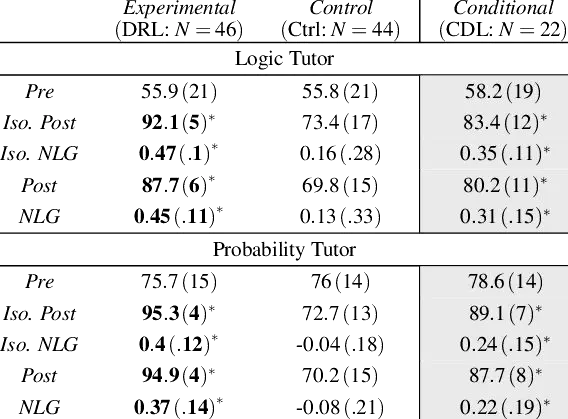Bridging Declarative, Procedural, and Conditional Metacognitive Knowledge Gap Using Deep Reinforcement Learning

Abstract
In deductive domains, three metacognitive knowledge types in ascending order are declarative, procedural, and conditional learning. This work leverages Deep Reinforcement Learning (DRL) in providing adaptive metacognitive interventions to bridge the gap between the three knowledge types and prepare students for future learning across Intelligent Tutoring Systems (ITSs). Students received these interventions that taught how and when to use a backward-chaining (BC) strategy on a logic tutor that supports a default forward-chaining strategy. Six weeks later, we trained students on a probability tutor that only supports BC without interventions. Our results show that on both ITSs, DRL bridged the metacognitive knowledge gap between students and significantly improved their learning performance over their control peers. Furthermore, the DRL policy adapted to the metacognitive development on the logic tutor across declarative, procedural, and conditional students, causing their strategic decisions to be more autonomous.